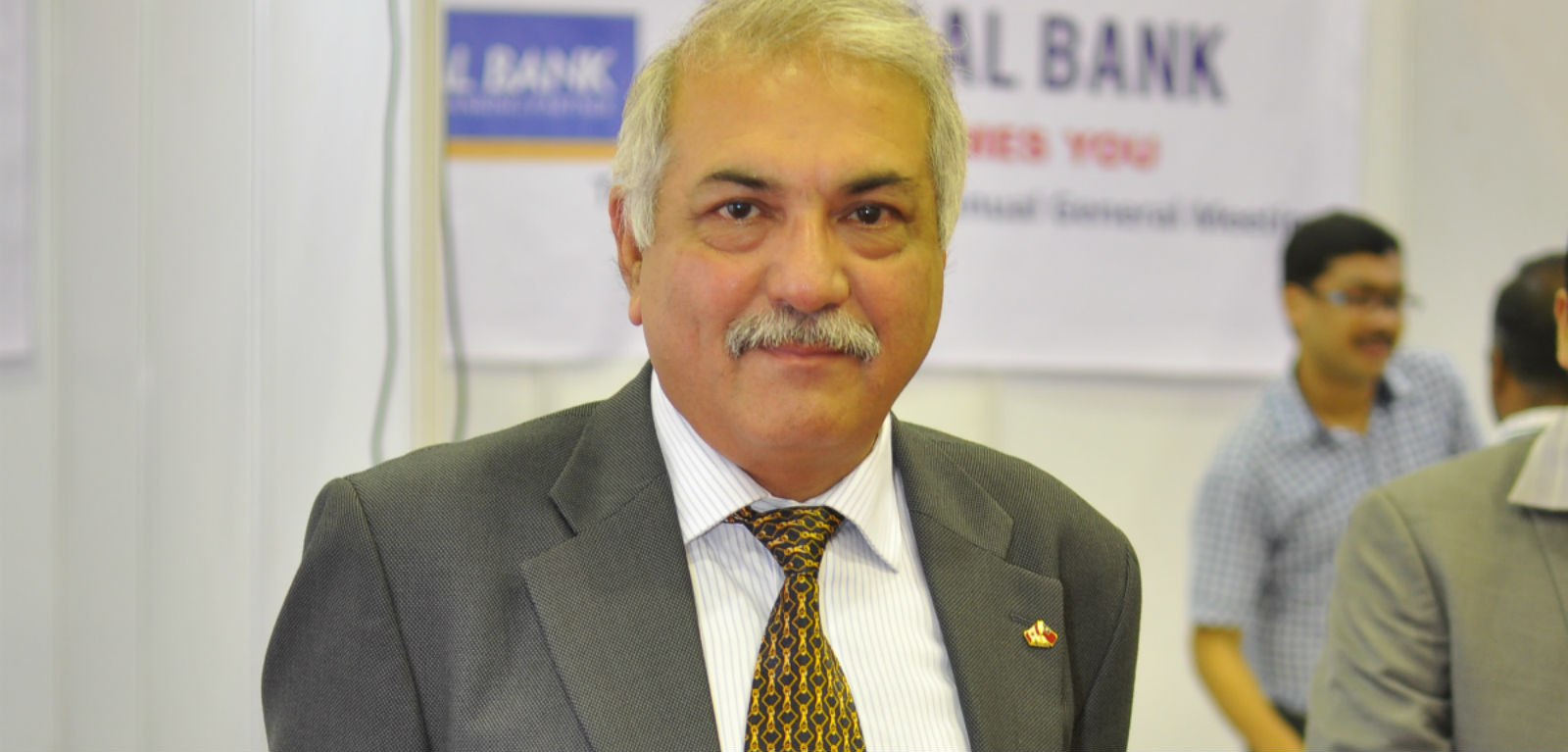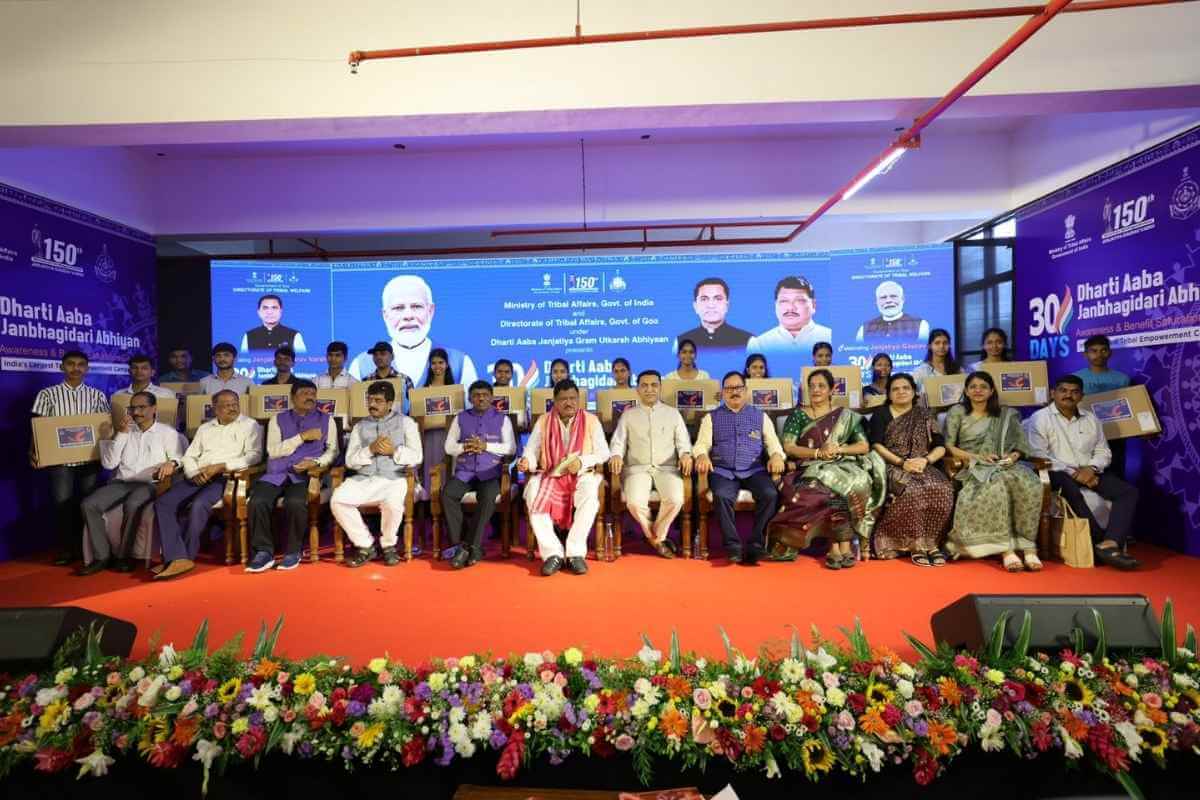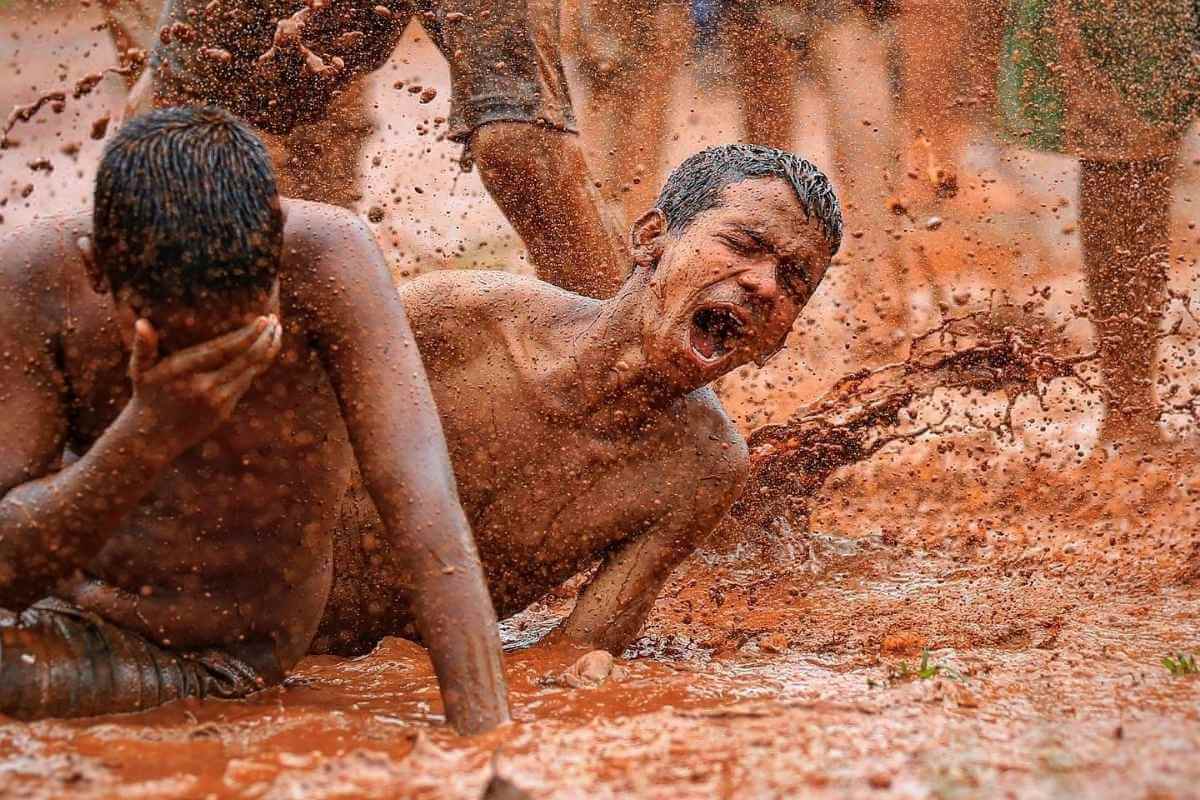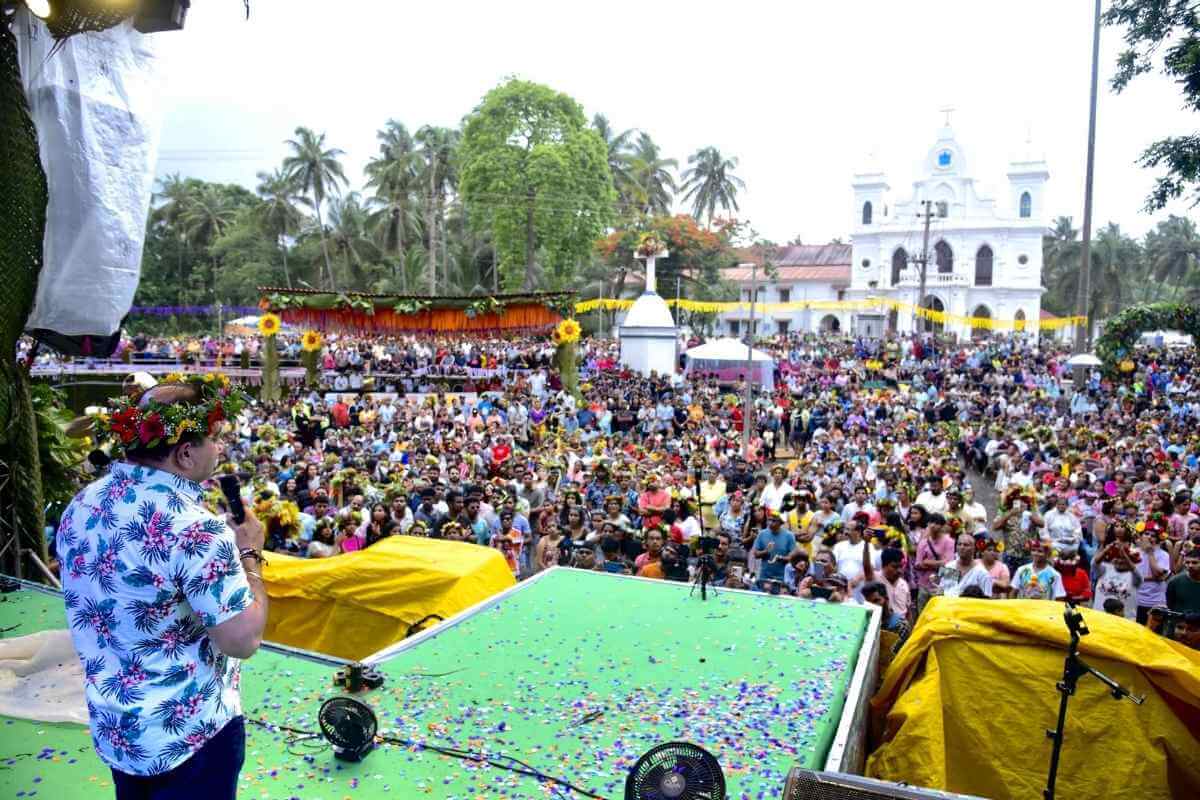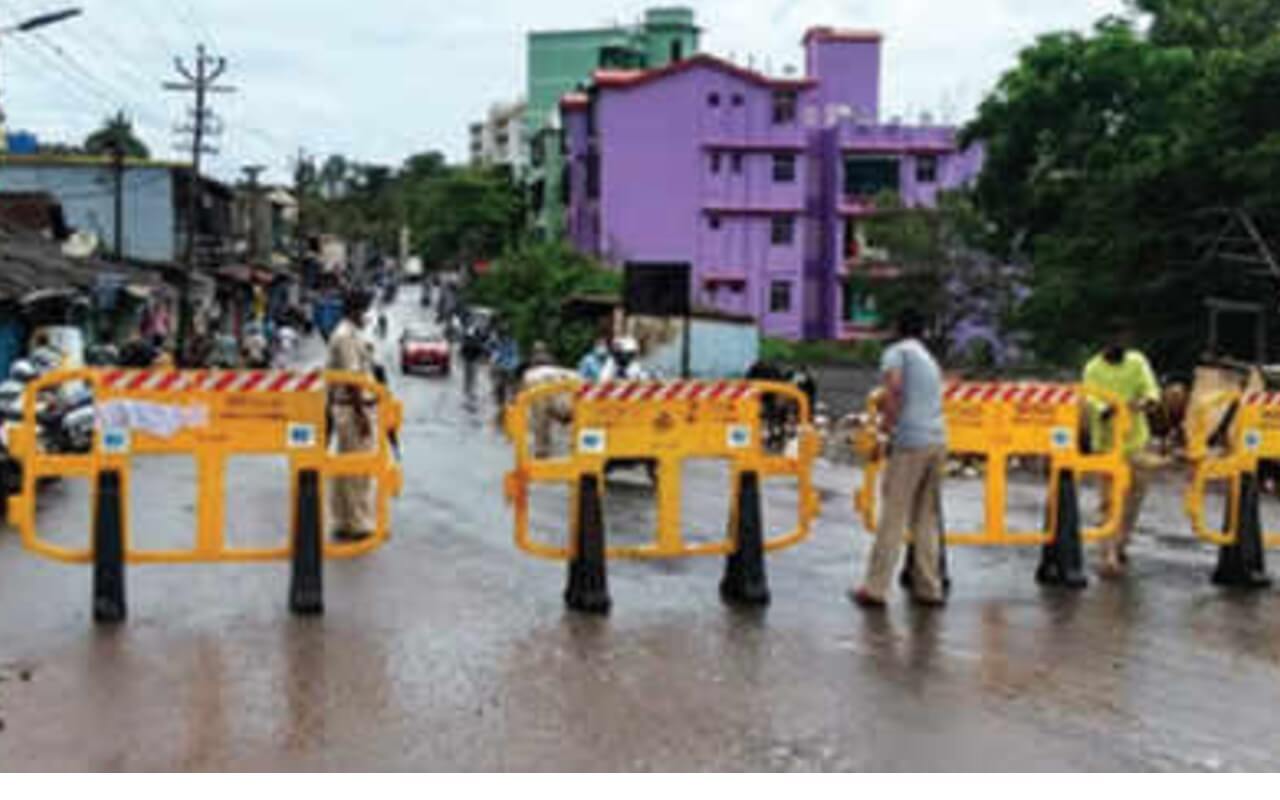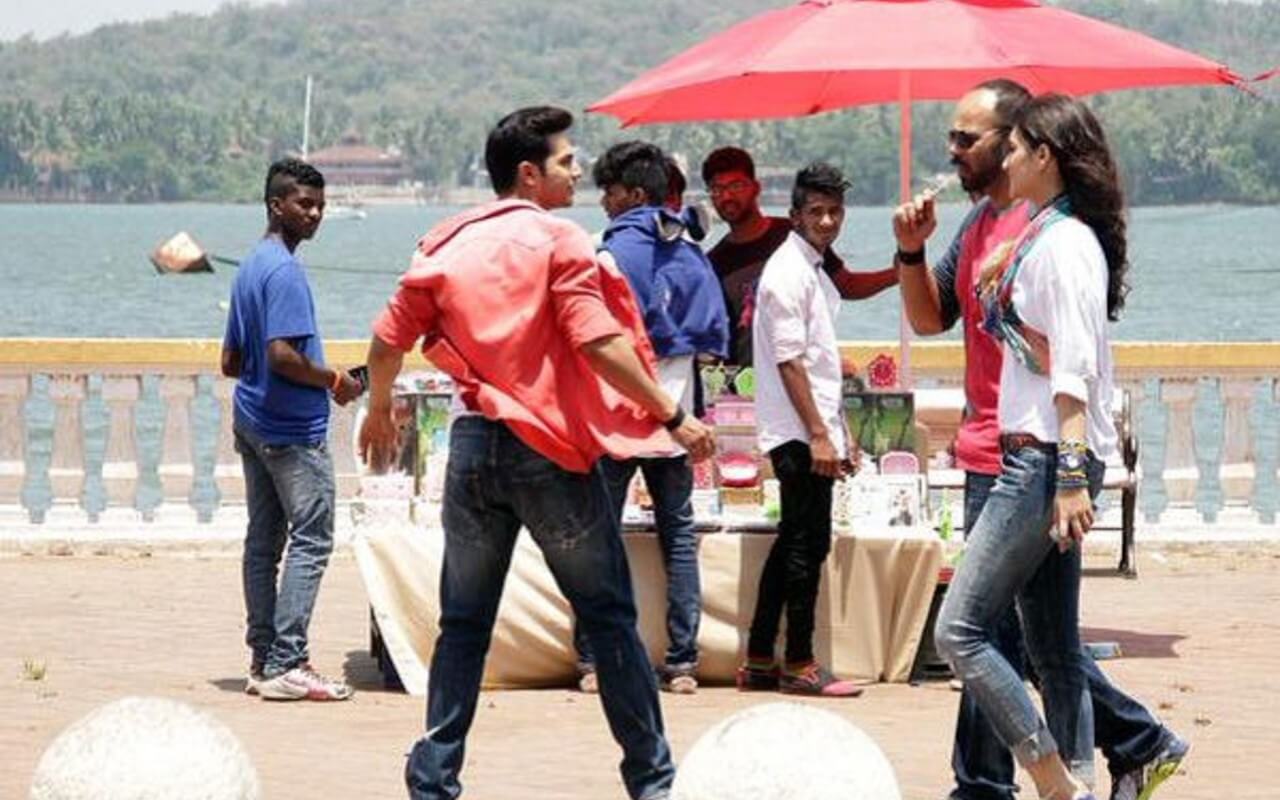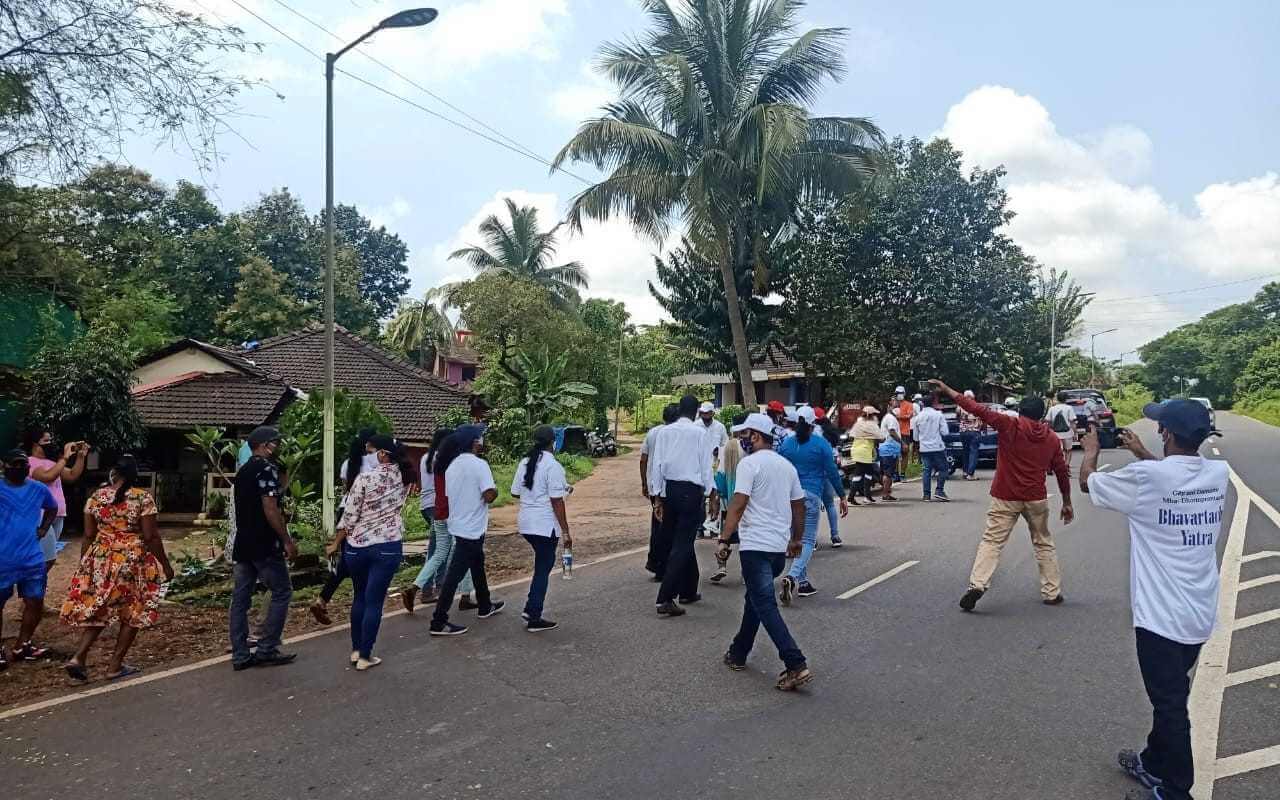We think that money can buy anything but if something ceases to exist, how can it then be bought? The answer is – it cant. Money cannot buy things that do not exist and this is applicable for the food that we need on a daily basis. Some foods need to be grown in fields and a certain Mr Manguirish Raikar set up and heads Goa’s first Agriculture College which creates farmers.
There are many money-making institutions in Goa and they are mushrooming with growing demand but no one has ever thought of starting a College of Agriculture in the state because that is something which doesn’t seem very lucrative. Goa, despite having abundant natural resources, remains dependent on neighbouring states because we do not have an emphasis on agriculture. There were times when rice was cultivated here but due to increased construction works, there is hardly any land left for agriculture in Goa. We have to bring everything, from groceries to vegetables and fruits from our neighbouring states like Maharashtra and Karnataka.
Manguirish started working on the idea of setting up of an Institute of Agriculture in Goa from the time he realized how dependent we have become on the other states for basic and daily goods. He wondered why Goans do not take up agriculture as a profession when it is one of the most lucrative fields at the moment. “I come from a family background that has a keen interest in agriculture,” said Mr. Raikar adding that he had been working on this for a long time. “Even the formation of Agricultural Farmers groups, and then taking it to the next step was forming a federation. With the help of the Goa State Co-operative Bank and others like the NABARD, we almost got the federation done. Today out of 90, 40-45 groups are really working well.”
Manguirish Pai Raikar comes from a very humble background. He spent his childhood in the capital city with his grandparents. “When I was in the 5 standard, I used to travel by bicycle. I was staying at my grandparent’s place as good education wasn’t available in the village in those days,” he said. “During the times when my grandparents were sick, I would have to look after them and their health and other work and in this way the quality of dignity in labour was instilled in me from a quite an early stage as I had and still have no issue with doing these tasks. Even if someone were to ask me now to sweep my own office, I would do it without any hesitation.”
Mr Maguirish learned self-discipline right from a young age and he could take care of himself as well as his grandparents at the same time. He always believed in the nuance of the process and that became his style of working. “I believed in not being dependant on anybody at first, and if someone challenges me saying something is not possible then I was first sure to make it possible. I would see to it myself personally that I sit in that seat and do that job myself, and once I achieved the task, people then cannot complain that the job is impossible,” he said.
Mr. Manguirish always believed in himself. “I can prove myself to them and make things workable by putting all my efforts and sincerity in that task. So what I have done right from my childhood is learn small processes to the extent that I could even cook if and when I needed to. The idea behind it was to be self-sufficient, and by being inspired from the idea of the proverb “necessity is the mother of all inventions”, so whatever small ways I could do things and learn them, in order to sustain myself I did,” he said.
Manguirish has the skill of getting along with people very easily. “This is something I can still vouch for as wherever I go, I only make friends. But then again, I don’t like to be on the pedestal, and hence I always find myself on the low end.” Mr. Manguirish is a national chairman of the MSME but despite that, he always preferred to remain humble. “My policy is very simple, if tomorrow I am no more in that position and someone sees me walking down the road they should not feel that I was arrogant when I was in that position,” said Mr Manguirish adding that he has always maintained a low profile for himself right from the early stages of his life. “I have been in various positions of chairmanship for almost all industry related matters in the state right from Goa Chamber of Commerce and Industry to the Safety Council of Goa and I have also chaired the Goa Management Association, but in all these places I have started right from the bottom.”
Manguirish had spent his entire childhood in Panjim and completed his graduation. “Only for my post-graduation I had to go to Mumbai because that course was not available in Goa then,” he said adding that after completing his Masters in Business Administration (MBA) he got the opportunity in Mumbai itself to work in the field of Logistics. “I always wanted to learn about that field more in practice even though after being taught about the same in my management classes. I was lucky enough to get an opportunity from 3 different companies, and I took up the one where I would get the best hands-on approach to Logistics. This way I learned the tricks of the trade, and when the time came a friend of mine with whom I had been in touch with for a while decided to start something together of our own.”
Mr. Manguirish ventured into the field of Manufacturing in the year 1981. “My first venture was the manufacturing of Vehicle Battery Plates. I still remember during those days the batteries had a top opening and one could make the battery new by just replacing the plates, and the market was very lucrative for the same which then subsequently became a market of usage and discarding,” said Mr. Raikar. In the year 1996, Manguirish saw that the market was dwindling and that it is a time to change deprecating the production of the same.
The best businessman is the one who senses the market before something adverse takes places and Manguirish was very sensitive to the market buzz, he was aware that sooner or later he had to be ready for the change and keeping that in mind he started a factory of packaging “We used to manufacture the corrugated boxes, covers, cones and so on,” said Manguirish adding that his manufacturing unit was serving only top companies involved into the production of machines. “We learned the art with the help of Indian Packaging Institute, Andheri in Mumbai. There was huge scope of using the packing into the export business and we had to be very precise and make sure the safety of the product inside the package. Soon we mastered the art and started manufacturing packaging for export purposes, and most of the big companies came to us as we were the specialists in that field. With the income tax holiday coming in, lots of industries started up in Goa where we had opened up our second unit of manufacturing which was based in Khorlim.”
“The most successful business is the first to attract competition and same happened with the packaging industry. Looking at the profit margins, many national companies started setting up their units in Goa and that lead to making the market very competitive at the same time, less lucrative. When we started doing just well in the business completion started arriving from all the sides and many units in Goa started closing down and tax holiday also reached depreciation which lead to negativity amongst the local manufacturers,” said Manguirish adding that “We were left with no other option but to consolidate ourselves into one company, so we closed one part of it and started it all under one umbrella. As of now, the packaging industry is still operational. Basically, when you want to do something, my idea is such that we should focus on one thing that we do the best and if we try to do to 10 different things we end up making a mess out of it.”
Coming back to the venture of Agriculture College in Goa, Manguirish always believed that farmers should get their legitimate dues and their families should enjoy the same facilities that other working-class people do. “I felt that there should be empowerment of the farmers. Luckily when we were thinking on these lines, the new government came into power in 2012. We thought that education was the best way to motivate and empower the farmers,” said Mr. Manguirish. He knew that education will help farmers to get better yields and they can grow foodstuff that has bigger demand from the marketplace.
You get the right price only for the right product and we wanted to educate the farmer to be self-sufficient and learn direct approach methods. “In those days, there was no educational institute for agricultural works so we thought that this should start from the higher secondary level so that these individuals could be prepared from the basics up until the final career levels by making agriculture as a career option,” said Mr. Manguirish. The first stage was to give theoretical knowledge and second and the most important was the practical knowledge. “Agriculture needs a in-field, on-the-job knowledge. When I thought about it, I got a lot of advice from the experts, right from Dapoli Institute of Agriculture to the Konkan Krishi Vidyapeeth. Every experienced person from these institutes, as there were a lot of them who wanted to give their input, joined me and agreed to do this,” he added.
Following the idea of setting up an Agriculture College, Manguirish started approaching local people for financial help. “It was not possible to set up such venture without any financial backup. I contacted a few Philanthropists in Goa so that they could come forward and help us with the setting up of the Higher Secondary but I found that it was lack-luster as far as responses went. In 2010 when I saw the statistics had come down to 4% from 86% from the time we were liberated in Goa, we became dependant on neighbouring states to provide for us,” he said adding that “Today, slowly, with collective efforts and motivation, it is all increasing. People will be surprised to know that we are exporting chillies from Goa and a lot of organic produce as well. Our biggest export item in Goa as of today is cashew nuts, even fruits such as mangos, local bananas, and sometimes that is why they are not so readily available in the markets: they are going outside the state.”
Finally, Manguirish Raikar’s dream became a reality but it did not come very easy but he did not stop and kept marching ahead regardless of the fact of lack of assistance. He was aware that nothing will come without sacrifice and he was ready to make them. “The main purpose was to strengthening education for the farmers, in this way strengthening the country,” he said adding that in the year 2010, he made a consensus that whatever land that was left for him by his grandparents, he would donate it to the society for the purpose of agricultural educational purposes. “That is how I started it in the name of my Grandfather, Ramnath Krishna Pai Raiker School of Agriculture located at Savoi, Verem. This decision of mine was met by a lot of questions asking me who would come to the village leaving the city behind to study. I reverted back to these questions telling them that one could do such agricultural stuff only in the village as the cities have no space for these kinds of things. The setting up of a college is not an easy task and it involves a lot of planning on the syllabus.
“I went to the Board where the support of the Chairman and the Secretary was very helpful, by requesting them to formulate a syllabus in order to have this course. They agreed and we took on board a few experts that I knew from the various universities mentioned earlier, to help us out. We had help from the local departments such as the Dept. of Agriculture as well, and likewise, we formed the Board of Studies for this Agriculture Education system. I had help from Dr. Mehrotra in helping me finalize and vet this syllabus, in which I got his assistance for the same and this helped in full proofing the matter and the areas we would have in the syllabus as Dr. Mehrotra himself was a Ph.D. graduate in the field of Agricultural Developments.
Today Mr. Manguirish has proved how Agriculture can help the state in revenue generation and self-empowerment of the farmers. “We have made people realize how there is a big scope in the field of agriculture. If you were to see the amount of employment that has generated across the country, it is 52% as of now. Many people seek careers in IT, Arts, Commerce, and here they don’t end up getting jobs at times but if they end up choosing Agriculture, the scope is vast and there is a vacuum of educated and skilled people.
Today, you might be an engineer, a businessman, a doctor, an accountant, lawyer or whatever it is, the only common factor is that you are hungry in the morning, afternoon, and night. There is nobody else but the farmer that we should be thankful for, as they struggle and work hard for the fruits of their labour, and they should be given credit where credit is due and that is something we are working towards.”

